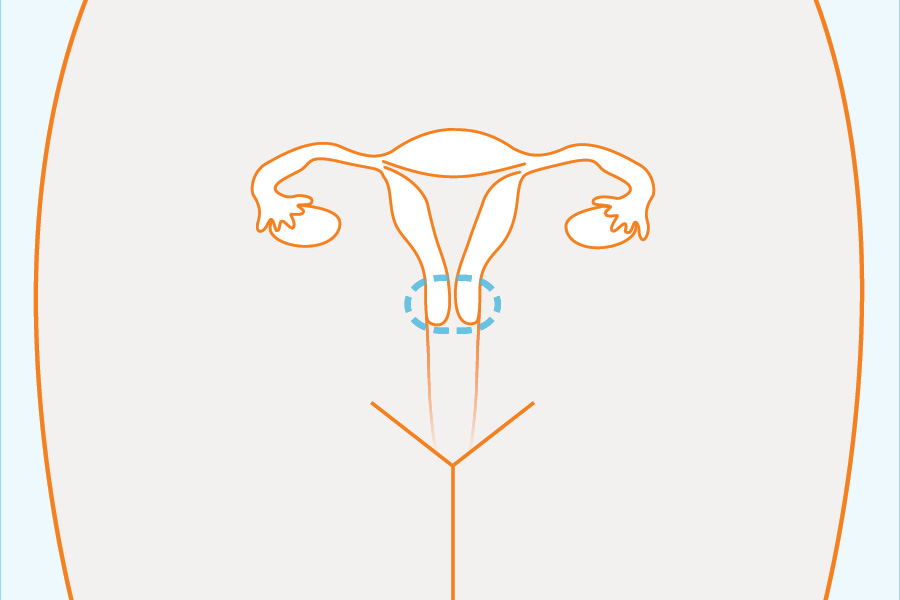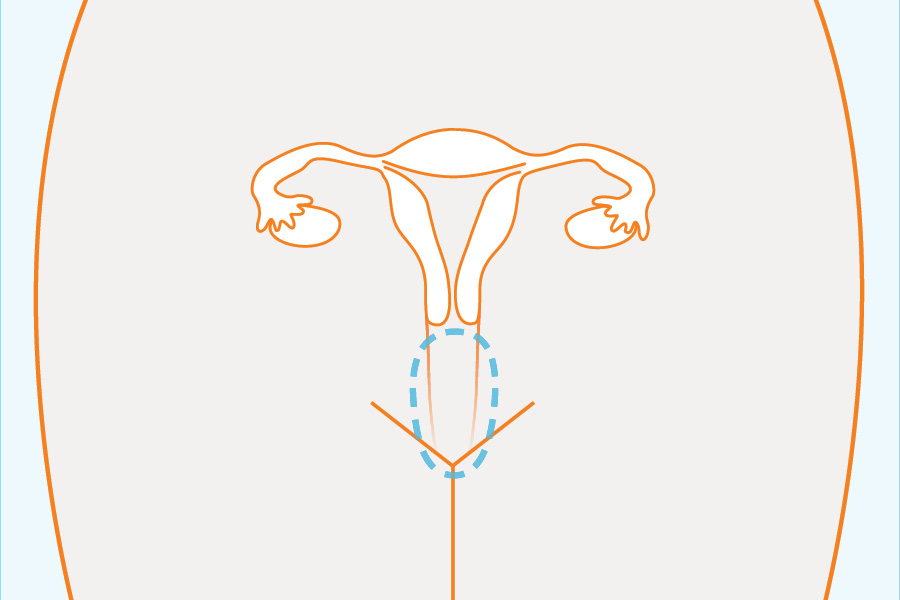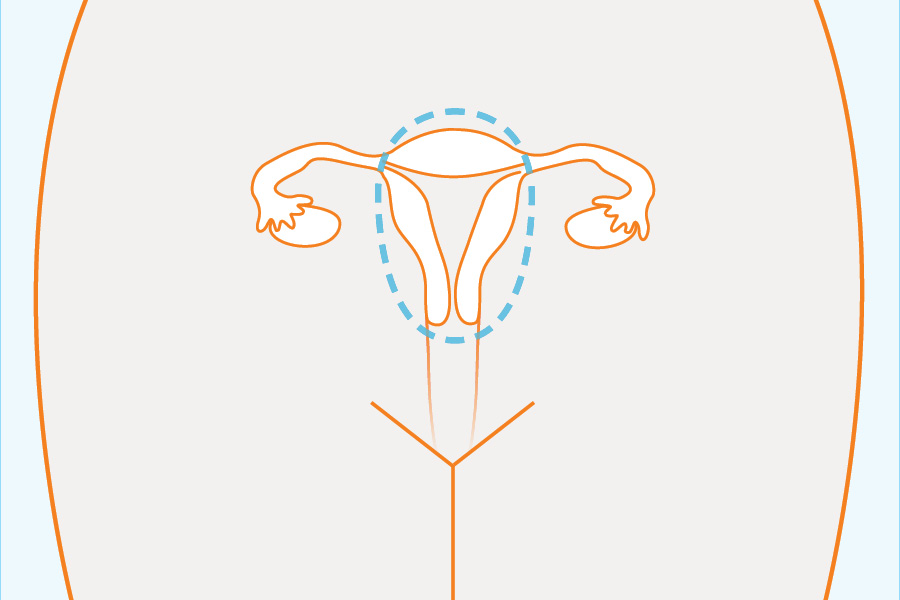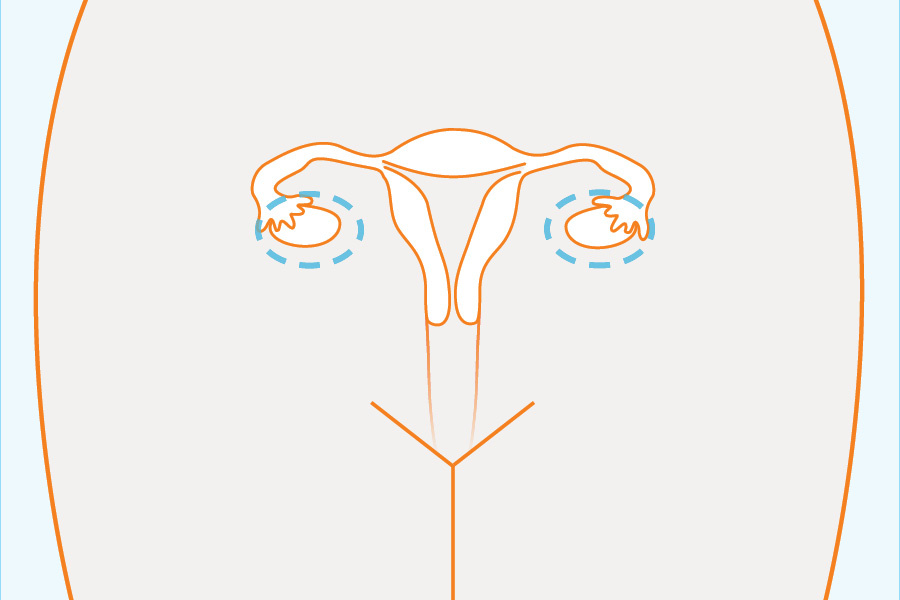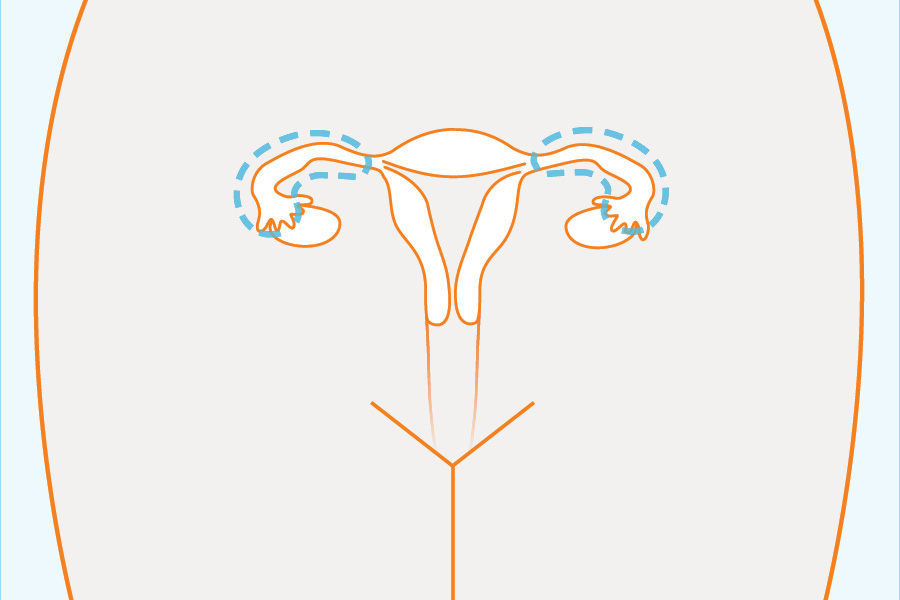The Basics
What is gonorrhea?
Gonorrhea is a sexually transmitted infection caused by bacteria called Neisseria gonorrhoeae. Gonorrhea can infect both males and females. If a female has gonorrhea and is not treated, she can develop serious and permanent damage in her reproductive organs.
How common is gonorrhea?
About 820,000 people get gonorrhea in the United States every year, but less than half of these infections are reported to the CDC (Center for Disease Control and Prevention). Young people are much more likely to get gonorrhea than older people.
Where does gonorrhea live?
In females:
- Labia (lips of the vagina)
- Inside the vagina, on the cervix (opening to the uterus)
- Uterus (where babies grow if you're pregnant)
- Fallopian tubes (the tubes that eggs travel through from the ovaries to the uterus)
In males:
- Penis (in the urethra - see below)
- Testicles
In males and females:
- Throat
- Mouth
- Anus
- Eyes (especially babies who are born to mothers with gonorrhea)
- Urethra (the hole and tube you pee through)
The bacteria cannot survive outside the human body. It will only stay alive as long as it is wet, which is usually only seconds to minutes.
This page was last fact checked September 27, 2012 by Dr. Anne Rompalo, Medical Director of the STD/HIV Prevention Training Center at Johns Hopkins.
Symptoms and Disease
If I have gonorrhea, will I develop symptoms?
Not necessarily, especially if you are female. Most (60-90%) males have symptoms, but most (80%) females do not have symptoms. Also, people infected in the rectum (the tube leading from the anus to the intestines) or throat will probably not notice symptoms.
What are the symptoms of gonorrhea?
If you are infected with gonorrhea and do get symptoms, you may notice:
For females:
- A change in vaginal discharge (amount, color, or odor)
- A change in periods, blood spotting between periods, or more painful periods
- Pelvic pain, especially during or after sex
- Vomiting (throwing up)
- Fever
For males:
- White, yellow, or green discharge (fluid leaking) from the penis
- Swelling or pain of the penis or testicles
For both males and females:
- Stinging or burning when urinating (peeing)
- The need to urinate (pee) more often
- Pus or blood coming out of the anus (if infected in the rectum)
- Anal discharge (fluid leaking out of anus that aren't usually there)
- Anal itching
- Painful bowel movements
- Painful sexual intercourse
- Painful in the lower stomach
- Itching and soreness of the throat with trouble swallowing
- Eye infection (if infected in the eye)
Many symptoms of gonorrhea are similar to symptoms of other health issues. So, if you show any of these symptoms it is best to talk to a doctor or other health care professional.
How quickly do the symptoms of gonorrhea develop?
Most females do not develop or notice symptoms, but those who do usually notice symptoms within 7 to 10 days after they are infected with gonorrhea. Even when a woman has symptoms, they are often mistaken for a bladder or vaginal infection.
Males with gonorrhea who get symptoms usually notice them 2-5 days after infection, but it can take as long as 30 days.
Most people do not notice symptoms when infected in the throat or rectum (the tube leading down to the anus from the intestines).
If a newborn gets gonorrhea during childbirth, symptoms include swelling of the eyelid and pneumonia, which can develop 5-12 days after birth.
What can happen if I don't get treated for gonorrhea?
For females:
- Pelvic inflammatory disease (PID)
- Pregnancy complications (like ectopic pregnancy, where a fertilized egg starts growing outside of the uterus)
- Infertility (problems getting pregnant)
- Long-term pelvic pain
- Pregnant women can pass gonorrhea to their babies
For males:
- Rarely, epididymitis (pain and swelling in one or both testicles, which can make a man infertile)
- Infertility (unable to get a female pregnant)
For both males and females:
- If you have gonorrhea, and don’t get treated, you will have a greater chance of getting HIV (the virus that causes AIDS).
- For both men and women, if gonorrhea is left untreated for too long, it can cause something called disseminated gonococcal infection (DGI), which can kill you. Symptoms of DGI include: arthritis (pain or stiffness of joints), tenosynovitis (swelling around tendons), or dermatitis (skin swelling or itching), skin rash or lesions, and fever. When diagnosed, DGI can be easily treated.
Transmission
How is gonorrhea spread?
It can be spread:
- During vaginal sex (both partners)
- During anal sex (both partners)
- Performing oral sex on a man
- Receiving oral sex if you are a man
- From mother to child during birth
- Through the sharing of sex toys (if inserted in the vagina or anus) within a short time period (seconds to minutes).
- Adults can get eye infections when discharge form infected genitals gets into the eyes
There is almost no evidence of gonorrhea spreading on other surfaces/materials (toilets seats, etc).
How can I prevent getting gonorrhea?
- Abstain from (avoid) having vaginal, anal, and oral sex
- Limit your number of sexual partners
- If you have vaginal or anal sex, use latex male condoms or female condoms
- For females, using diaphragms or cervical caps may have some protective effect against getting gonorrhea.
- If you have oral sex, use condoms or a latex or plastic barrier
- If you share insertive sex toys with your partners, wash the toys regularly and putting a male condom on the toy (which you change every time the toy is inserted into a new person)
It is important to know that you can get gonorrhea even when your partner has no symptoms. For more tips, visit our Protect Page.
If I have gonorrhea, how can I prevent giving it to someone else?
- Get treated, and don't have sex until 7 days after your treatment is done
- If you feel safe, tell your sex partners that you have the infection, so they can protect themselves and get tested
- Once you are cured, use latex male condoms or female condoms when you have vaginal, anal, or oral sex
- Abstain from (avoid) having vaginal, anal, and oral sex
- Use condoms and dental dams (for oral sex)
- If you share insertional sex toys with your partners, wash the toys regularly and putting a male condom on the toy (which you change every time the toy is inserted into a new person).
It is important to know that, if you are infected, you can give someone else gonorrhea even when you don't have symptoms. For more tips, visit our Protect Page.
Can I still infect others with gonorrhea if I don't have symptoms?
Yes, even if you don't have symptoms, you may still be able to transmit gonorrhea if you have not been treated.
Tests, Results, & Treatment
How long do I have to wait to get tested for gonorrhea?
Tests can sometimes detect gonorrhea within two to four days after infection, but you should wait 2-3 weeks after exposure to be as sure that a negative result is in fact negative.
How do you test for gonorrhea?
There are a couple of ways to test for gonorrhea:
Urine tests: You will pee in a cup and then your urine will be tested. Both males and females can get a urine test. To get the most accurate results, do not urinate (pee) for 2 hours before a urine sample is collected.
Swab test: Females will have a cotton swab of the vagina (or cervix, which is inside the vagina). Males will have a cotton swab of the urethra (the hole that pee comes out of). Sometimes a swab is taken from the throat or rectum, to check for infection there.
All parts of the body that could be infected with gonorrhea need to be swabbed and tested. For example, a person can test negative for gonorrhea in the vaginal area, but positive in the throat.
How long do I have to wait for results from a gonorrhea test?
Results can take 3 to 10 days depending on where you got tested and where the lab located. While you're waiting for your results, it's a good idea to use a condom or not have sex.
Where can I get tested for gonorrhea?
You can get tested at a doctor's office. You can also go to a clinic that tests for gonorrhea. See our Test Page to get more information and search for clinics near you.
Is gonorrhea curable?
Yes, gonorrhea is curable.
What is the treatment for gonorrhea?
Discuss treatment options with a doctor or other healthcare professional. Gonorrhea can be treated and cured with antibiotics (usually just a single pill). Some people may need to get a shot for a new kind of gonorrhea infection that isn't easily cured by antibiotics.
People diagnosed with gonorrhea often have chlamydia as well, so your healthcare provider might treat you for both at the same time.
Finish taking all the medication even if your symptoms go away. Talk to a doctor or other healthcare professional if you miss some pills or still have symptoms after you take all your medication.
Can I use medication I already have to treat gonorrhea?
No. If your medication is old or the wrong type, it will not cure you.
Can I share my gonorrhea medication with my partner?
No. You need to take all of your medication to be cured.A doctor or other healthcare professional might give you some medication specifically for your partner(s). If that happens, you can give that medication to your partner(s).
Do I need to do anything after I'm cured for gonorrhea?
After you are cured of gonorrhea it is important that you:
- Inform your partners, if you feel safe doing so
- Don't have sex until treatment is complete
- Make sure that anyone you are having sex with is tested and treated (if they also have gonorrhea), so you don't get it again
- Get tested again in three months
- Once you are cured and start having sex again, use condoms for vaginal and anal sex and dental dams for oral sex
Partner Notification
Should I notify my partner(s) if I have gonorrhea?
Yes, if you feel safe doing so. Gonorrhea can be easily tested for and cured.
Who should I notify if I have gonorrhea?
The Centers for Disease Control recommends you tell anyone you had vaginal, anal, or oral sex with in the 60 days before you were diagnosed or first noticed symptoms. Below is our more detailed take on who you should tell:
Past Partners: We recommend that you notify anyone you had sex with in the past 6 months. If you haven't completed treatment yet, we suggest that you tell anyone you have sex with from now until you finish your medication. Below are some recommendations on which of your past partners to notify.
If you had symptoms:
You probably were infected sometime in the month before your symptoms
showed up. We recommend that you tell anyone you had vaginal, anal and/or oral sex in five weeks before you developed symptoms (to be safe). Also tell anyone you had sex with since you noticed symptoms, and up until one week after you completed treatment. The picture below shows your "at-risk" period (the blue is the time when you might have had gonorrhea):
If you didn't have symptoms and your last gonorrhea test was negative:
You could have been infected or infected someone else since one week before your last test. You were also infectious up to one week after you completed treatment for this infection. We recommend that you tell anyone you had vaginal, anal and/or oral sex with during that period of time. The picture below shows your "at-risk" period (the blue is the time when you might have had gonorrhea):
If you didn't have symptoms and your last gonorrhea test was positive:
You could have been
infected or infected someone else since you finished treatment for your last infection. You were also infectious up to
one week after you completed treatment for this infection. We recommend that you tell anyone you had vaginal, anal and/or oral sex with during that period of time. The picture below shows your "at-risk" period (the blue is the time when you might have had gonorrhea):
If you didn't have symptoms, your gonorrhea test before this one was positive, and you didn't get treated:
You could have been infected or infected someone else all the way back to one week before your last negative gonorrhea test. We suggest that you tell anyone you have had sex with since then.
If you didn't have symptoms and you've never had a negative gonorrhea test:
If you have never had a negative gonorrhea test, it is hard to tell when you got infected. Anyone you have ever had vaginal, anal and/or oral sex could be notified.
Current Partners: As long as you feel safe doing so, we recommend that you tell anyone you are currently having sex with. Even if you have already taken medication, you are still infectious up until one week after you finish treatment, so tell anyone that you have sex with during that time.
Future Partners: Because gonorrhea is curable, if you get treated and cured, you do not have to tell your future partners.
That's a lot of people to notify. Which of my partners are most at risk for gonorrhea?
As long as you feel safe doing so, we recommend notifying your current partners and anyone you've had sex with in the last 6 months.
If a doctor or other healthcare professional has told you that you have a condition like pelvic inflammatory disease or that you may have fertility issues, this may indicate that you've been infected for longer and may want to notify partners from longer ago.
Resources Online
-
Centers for Disease Control (CDC)
PubMed Health
Planned Parenthood
Avert.org
WomensHealth.gov
University of Maryland Medical Center
American Sexual Health Association

